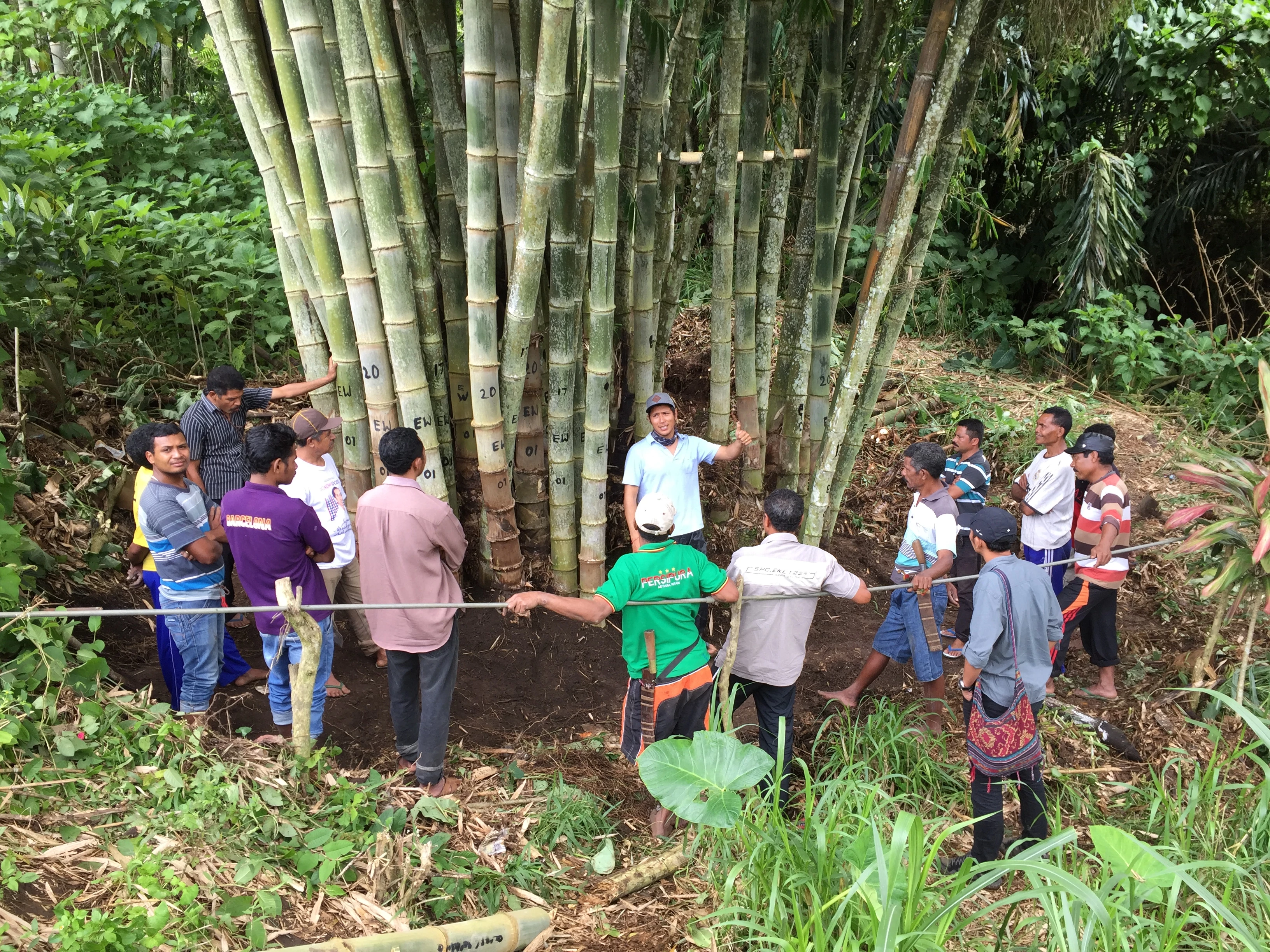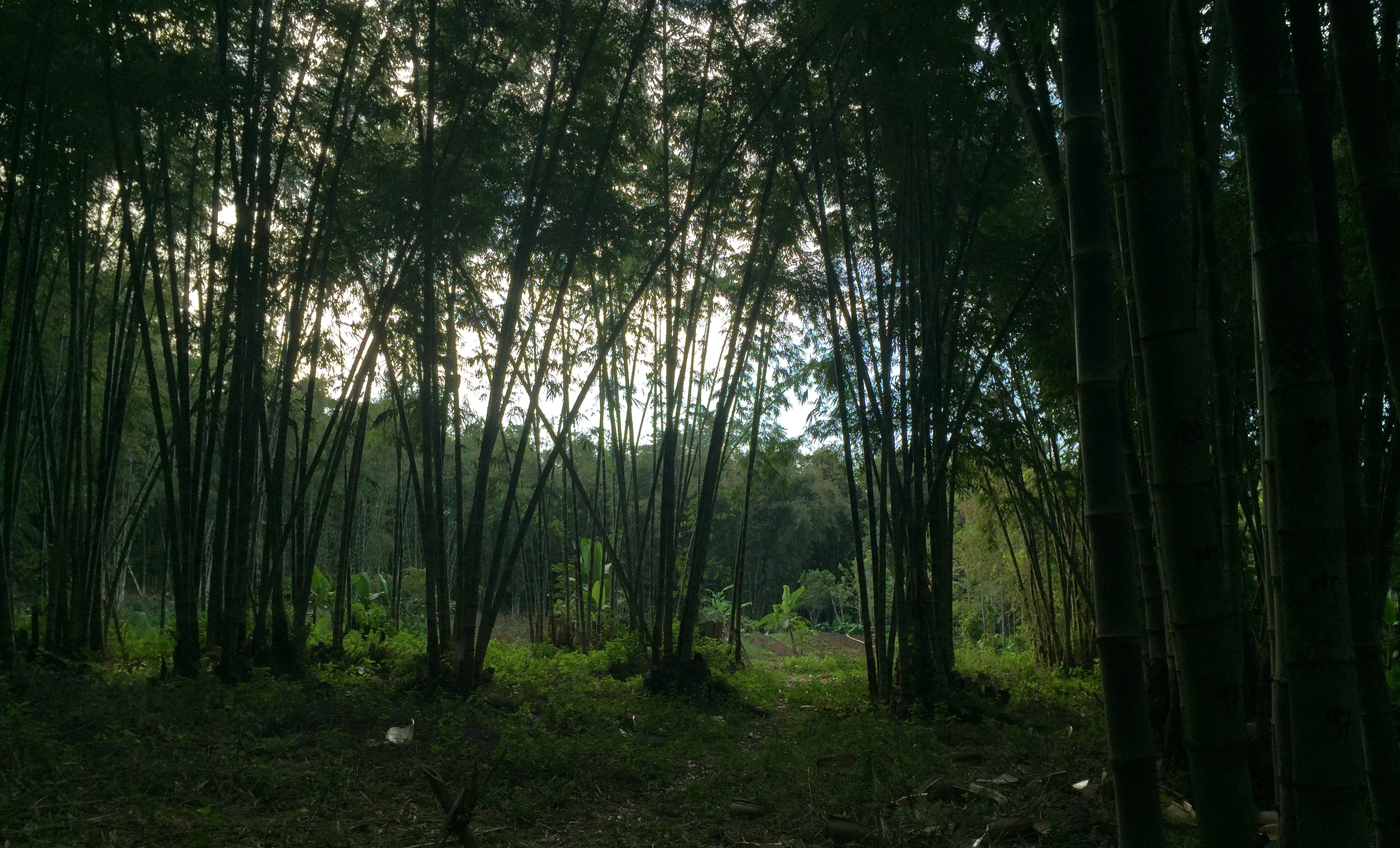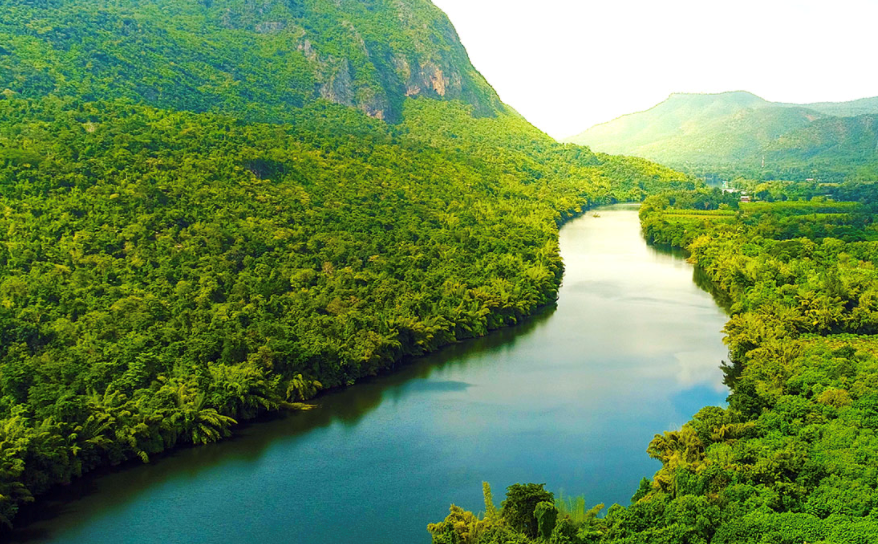DFCD supports Indonesian PT Indobamboo Lestari to get ready to build factory to manufacture FSC-certified bamboo products
Deze content is in het Engels. Wil je meer informatie? Neem dan contact op!
The Dutch Fund for Climate and Development (DFCD) has approved a €350,000 grant for PT Indobamboo Lestari to hire the technical support needed to set up a factory to manufacture bamboo products on the island of Flores in Indonesia.
PT Indobamboo sources the bamboo poles from smallholders across 10,000 hectares of sustainably-managed forest on Flores’s mountain slopes. The forests are expected to be fully FSC certified by mid 2022.
As part of the project, it will also build up to four village factories to pre-process bamboo poles before they are transported to the central factory. This ensures that the bamboo undergoes preservation as quickly as possible to guarantee the highest quality.
With the DFCD grant PT Bamboo Lestari can hire the right technical expertise and follow training in project management to prepare for the construction of the factories.
The project has been put forward by the World Wide Fund for Nature Netherlands, which manages together with SNV Netherlands Development Organisation the DFCD’s Origination Facility to develop new projects for the investment fund.
The magic of bamboo
“Bamboo is a magical plant that keeps everything alive,” says Stuart Beavis, Regional Lead DFCD Asia. Its roots can stretch 1.5 metres underground. As a result, each bamboo clump can hold 5,000 litres of water over a nine-month period, improving the forest’s water retention by 35% and the soil’s health.
During the dry season it releases this water into the surrounding soil and thereby watering the other vegetation. Planted on the hillsides that have little agricultural value, the bamboo plantations offer protection against landslides and restore degraded land.
The giant grass, with a clump diameter of five to seven metres and a pole diameter which can exceed 30cm, grows one meter per day and reaches a height of 45 metres. Bamboo can be harvested continuously and, by following the Environmental Bamboo Foundation’s Sustainable Harvesting Programme, there is no need to replant.

Strong market demand for Indonesian bamboo
The species of bamboo utilised by PT Indobamboo Lestari, as found in Indonesia, is bigger, longer, thicker, and faster-growing than bamboo species widely grown elsewhere. “It has a high quality and a high yield,” says Beavis. And on top of that industrial bamboo products from Indonesia are competitively priced versus Chinese bamboo products and other sources of timber.
As such, there is a strong demand for Indonesian bamboo. Another reason is that international buyers are looking to diversify their procurement away from China which is currently the world’s main bamboo producer.
Bottom-up development
PT Indobamboo Lestari was founded in 2012 by Arief Rabik, also the current CEO, as a sister organisation of the Environmental Bamboo Foundation. This organisation has been running bamboo forestry programmes across Indonesia for 27 years with the support of the Indonesian Ministry of Environment & Forestry and other partners including WWF-Indonesia.
The Environmental Bamboo Foundation works with the smallholders to ensure they use the best and most sustainable agroforestry practices to grow, harvest and handle the bamboo.
Working agreement with a large furniture brand
The company has been working alongside a large furniture brand to develop a future production line of FSC-certified chopping-boards and glue-boards. The company is strongly committed to sustainable production and achieving local inclusive economic development. It has people on the ground supporting PT Indobamboo Lestari.

Getting ready for € 10 million investment in production line
To build the new bamboo boards production line PT Indobamboo Lestari needs € 10 million in investment capital: a € 2 million equity raise from a group of impact investors is expected to be closed in June 2021. The remaining EUR 8 million in debt will be provided by the DFCD in two tranches (one in 2022 and one in 2024) on the completion of certain milestones and by one debt partner in the second tranche.
The current DFCD origination grant will help co-fund the steps the company needs to take to be ready for this investment package, such as obtaining the required licences and permits, conducting a feasibility study, and a preliminary environmental and social impact assessment.
Stuart Beavis, Regional Lead WWF DFCD Asia: “Bamboo is a remarkable natural material. It is a giant grass that irrigates the forest during the dry season as it releases water from the clump. If harvested and processed in the right way, it can truly serve as a more sustainable alternative to our most commonly used wood-based materials.”
Arief Rabik, CEO of PT Indobamboo Lestari: “Bamboo is the sustainable timber of the future not just because of how quick it grows, but also for how pro farmer it is. The investment needs to get a bamboo agroforestry system going are very low as well as the costs to maintain and harvest the agroforestry system. This allows farmers across the tropical belt to make a much easier decision to choose bamboo as long as the market is there to support offtake.”
Key impact metrics per year
- Water retained in bamboo in year one is 360 million litres and by year 10 it is 1,450 million litres.
- Bamboo agroforests sequester up to 50 tonnes of CO2 per hectare per year.
Contact
For more information, Stuart Beavis, Regional Lead WWF DFCD Asia at sbeavis@wwf.org.hk
In case you have any grievances in relation to this project of the DFCD’s Origination Facility, please contact us through our service desk at servicedesk@wwf.nl
About the DFCD
The DFCD enables private sector investment in projects aimed at climate adaptation and mitigation in developing countries. The Dutch Ministry of Foreign Affairs has made available € 160 million to increase the resilience of communities and ecosystems most vulnerable to climate change. The DFCD is managed by a pioneering consortium of Climate Fund Managers (CFM), Worldwide Fund for Nature Netherlands (WWF-NL) and SNV, led by the Dutch Entrepreneurial Development Bank, FMO.
About PT Indobamboo Lestari
PT Indobamboo Lestari has been producing laminated bamboo products in Bali, using bamboo that originates in Flores, since 2012. It was founded as a sister organisation to the Environmental Bamboo Foundation, which was founded in 1993, to promote, develop, and implement sustainable bamboo agroforestry and harvesting practices. This partnership has resulted in leading sustainable forestry management and finished goods production practices. Its approach has won numerous awards and supply partnerships.
About DFCD
The Dutch Fund for Climate and Development (DFCD) is a climate fund, dedicated to supporting climate adaptation and mitigation projects which benefit vulnerable communities and landscapes. Initially funded by the Dutch government, it is powered by a consortium of four expert organisations: FMO (Dutch Entrepreneurial Development Bank), CFM (Climate Fund Managers), SNV, a global development partner, and WWF Netherlands.

